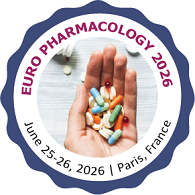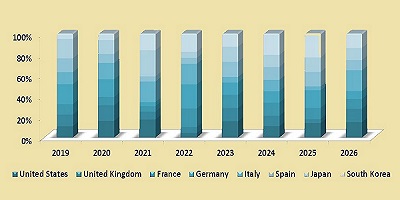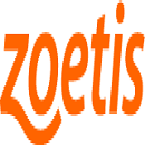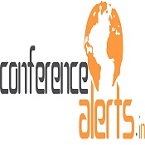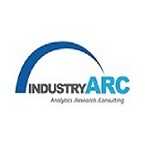Sessions and Tracks
Track-1: Drug Discovery & Early-Stage Development
This track explores the foundational steps of identifying promising drug candidates. Discussions will highlight target identification, hit-to-lead optimization, and computational modeling innovations. Experts will share new tools that enhance screening accuracy and reduce development timelines. Emphasis will be placed on integrating AI, machine learning, and big data to understand molecular interactions. Case studies on successful early-stage programs will be presented. Attendees will gain strategic insights into improving discovery efficiency.
Track-2: Clinical Pharmacology & Therapeutics
Focused on clinical evaluation, this track covers Phase I–IV trials and therapeutic optimization. Speakers will present new models for assessing drug efficacy, safety, and dosing across diverse populations. Special discussions will address personalized medicine and adapting clinical protocols for real-world data. Emphasis will be placed on improving patient recruitment and retention in trials. Attendees will gain updates on regulatory frameworks. The track aims to strengthen clinical research quality globally.
Track-3: Toxicology & Safety Pharmacology
This track examines the safety assessment methods essential for drug approval. Topics include predictive toxicology, in vitro assays, and emerging biomarker technologies. Experts will discuss regulatory expectations for toxicity profiling. New approaches to reduce animal testing using 3D models and organ-on-chips will be highlighted. Case studies on managing toxicological failures will be shared. Participants will learn best practices for early safety detection.
Track-4: Pharmacogenomics & Precision Medicine
This track delves into how genetics influence drug response and therapeutic outcomes. Presentations will explore genome-wide association studies, biomarker-driven therapies, and individualized dosing strategies. Focus will be on translating genomic data into clinical practice. Experts will discuss challenges in implementing precision medicine across healthcare systems. Attendees will gain insights into designing population-specific medications. The goal is to bring personalized care closer to routine use.
Track-5: Neuropharmacology & CNS Therapeutics
Neuropharmacology continues to evolve with breakthroughs in brain-targeted therapies. This track will spotlight treatments for neurological disorders such as Alzheimer’s, Parkinson’s, epilepsy, and depression. Cutting-edge research in blood–brain barrier penetration and neuromodulation will be covered. Experts will also discuss psychiatric drug development challenges. Emerging tools such as optogenetics and neuroimaging will be highlighted. Delegates will explore future directions in CNS drug innovation.
Track-6: Cardiovascular & Metabolic Pharmacology
This track focuses on therapeutic advances for cardiovascular diseases, diabetes, obesity, and metabolic syndromes. Sessions will highlight novel drug targets, combination therapies, and metabolic pathway modulation. Researchers will discuss breakthroughs in lipid-lowering drugs, antidiabetics, and cardioprotective agents. Special emphasis will be on translating basic discoveries into clinical benefit. Attendees will learn about ongoing trials shaping treatment guidelines. The track promotes collaboration across cardiometabolic research.
Track-7: Immunopharmacology & Immunotherapy
The immune system remains a powerful target for therapeutic development. This track explores immunomodulators, vaccines, and next-gen biologics. Experts will discuss advances in checkpoint inhibitors, CAR-T therapies, and autoimmune disease treatments. Sessions will cover immune tolerance, inflammation pathways, and biomarkers predicting response. Real-world challenges in manufacturing and delivering immunotherapies will also be addressed. The track offers a comprehensive update on immune-based drug strategies.
Track-8: Cancer Pharmacology & Targeted Oncology
Focused on precision oncology, this track highlights targeted therapies, cancer immunotherapy, and personalized treatment models. Researchers will discuss molecular profiling, tumor microenvironment targeting, and predictive biomarkers. Case studies on successful cancer drug approvals will be shared. Challenges such as resistance mechanisms and toxicity management will be explored. Novel therapeutic combinations will be presented. Participants will gain insights into next-generation cancer therapeutics.
Track-9: Natural Products & Herbal Pharmacology
This track explores plant-based and naturally derived compounds in drug development. Presentations will cover isolation techniques, bioactivity screening, and safety validation. Experts will discuss modernizing traditional medicine through scientific investigation. Emphasis will be on integrating natural compounds with synthetic molecules for enhanced efficacy. Case studies of successful herbal-based therapies will be shared. Attendees will learn how nature continues to inspire modern pharmacology.
Track-10: Biologics, Biosimilars & Protein Therapeutics
This track focuses on complex biologics ranging from monoclonal antibodies to engineered proteins. Sessions will explore biosimilar development, comparability studies, and regulatory considerations. Experts will discuss innovative platforms for biopharmaceutical production. Topics include stability, immunogenicity, and large-scale manufacturing. Attendees will gain insights into emerging protein engineering technologies. The track aims to support safe and effective biologics development.
Track-11: Nanomedicine & Drug Delivery Systems
Nanotechnology continues to revolutionize drug delivery. This track examines nanoparticle carriers, liposomes, polymeric systems, and controlled-release formulations. Presentations will highlight targeted delivery to tumors, the brain, and inflamed tissues. Experts will discuss regulatory and safety frameworks for nanomedicine. Developments in imaging-guided therapy will be explored. The track promotes novel strategies to enhance bioavailability and therapeutic performance.
Track-12: Pharmacovigilance & Drug Safety
Ensuring post-marketing drug safety is crucial for global health. This track covers adverse event monitoring, risk management systems, and real-world evidence collection. Experts will discuss AI-driven surveillance tools and big data analytics. Presentations will highlight case studies of safety signals and regulatory responses. Emphasis will be on improving reporting systems and patient involvement. Attendees will learn how to strengthen pharmacovigilance infrastructure.
Track-13: Pediatric & Geriatric Pharmacology
Drug response varies significantly across age groups. This track examines age-specific dosing, safety concerns, and therapeutic challenges in children and older adults. Experts will discuss clinical trial design tailored to vulnerable populations. Sessions will highlight pharmacokinetic and pharmacodynamic differences. Emphasis will be on minimizing adverse effects and improving adherence. Solutions for polypharmacy in the elderly will also be explored.
Track-14: Regulatory Affairs & Drug Approval Pathways
This track explains global regulatory frameworks governing drug approval. Experts will compare FDA, EMA, MHRA, and Asian regulatory systems. Sessions will address dossier preparation, quality standards, and expedited approval programs. Case examples of successful approvals will be shared. Discussions will emphasize harmonization across global markets. Attendees will learn best practices for navigating complex regulatory landscapes.
Track-15: Analytical & Bioanalytical Techniques
Analytical science supports every stage of drug development. This track covers mass spectrometry, chromatography, spectroscopy, and molecular assays. Experts will discuss method development, validation, and data interpretation. Advances in high-throughput and automation technologies will be highlighted. Case studies on impurity profiling and stability testing will be presented. Attendees will learn how to ensure accuracy and compliance in analytical workflows.
Track-16: Pharmacokinetics & Pharmacodynamics (PK/PD)
Understanding drug behavior in the body is essential for therapeutic optimization. This track includes modeling, simulation, dose selection, and bioavailability studies. Sessions highlight population PK, physiologically-based modeling, and exposure-response analysis. Researchers will present new tools for predicting human outcomes. Attendees will explore how PK/PD informs clinical strategies. The track aims to improve precision in drug dosing.
Track-17: Veterinary & Comparative Pharmacology
This track explores drug development for animals and comparative models relevant to human medicine. Topics include veterinary therapeutics, toxicology, and zoonotic disease treatment. Experts will discuss translational research using animal models. Presentations will highlight regulatory frameworks for veterinary drugs. Emphasis will be on improving treatment outcomes across species. Delegates will appreciate the link between human and animal health.
Track-18: Psychopharmacology & Behavioral Science
This track focuses on therapies affecting mood, cognition, and behavior. Topics include antidepressants, anxiolytics, antipsychotics, and addiction treatments. Researchers will discuss challenges in understanding mental health disorders at the molecular level. Neurobehavioral assessment tools and imaging technologies will be explored. Sessions will highlight real-world trial designs for psychiatric drugs. Attendees will gain insights into emerging therapeutic targets.
Track-19: Endocrine & Hormonal Pharmacology
Hormonal regulation plays a central role in health and disease. This track explores therapies for endocrine disorders including thyroid dysfunction, adrenal disorders, reproductive issues, and growth abnormalities. Experts will discuss peptide hormones, receptor modulators, and hormone replacement strategies. Advances in metabolic hormone research will be highlighted. Case studies on clinical applications will be shared. Attendees will gain a deeper understanding of hormonal drug innovation.
Track-20: Industrial Pharmacy & Manufacturing Innovations
This track examines large-scale drug manufacturing, quality control, and advanced production technologies. Topics include continuous manufacturing, automation, and GMP compliance. Experts will discuss strategies to reduce cost and improve scalability. Sessions will highlight supply chain resilience and digital transformation. Case studies will focus on industry best practices. The track aims to enhance pharmaceutical production efficiency.
Track-21: Forensic Pharmacology & Toxicology
This track covers the application of pharmacology in legal and investigative settings. Topics include drug testing, forensic analysis, and toxic substance identification. Experts will discuss analytical advancements improving accuracy in criminal investigations. Sessions will explore the role of pharmacological evidence in court cases. Emerging challenges such as designer drugs will be addressed. Attendees will understand the intersection of science and law.
Track-22: Pharmacoepidemiology & Real-World Evidence
Real-world data continues to shape healthcare decisions. This track explores large-scale population studies, outcome research, and drug-use patterns. Experts will discuss methodologies to ensure robust and bias-free findings. Presentations will highlight case studies of safety signals identified through big data. Attendees will learn how real-world evidence supports policy and regulatory decisions. The track promotes evidence-based healthcare.
Track-23: Antibiotic Resistance & Antimicrobial Pharmacology
Antimicrobial resistance remains a global threat. This track examines new antibiotics, stewardship strategies, and alternative antimicrobial approaches. Experts will discuss mechanisms of resistance and emerging drug targets. Sessions will highlight phage therapy, antimicrobial peptides, and drug repurposing. Case studies from clinical settings will be presented. The goal is to advance innovative solutions to combat resistant pathogens.
Track-24: Environmental & Occupational Toxicology
This track focuses on chemical exposure risks in the environment and workplace. Presentations will cover endocrine disruptors, industrial chemicals, and environmental pollutants. Experts will discuss assessment models, biomarkers of exposure, and public health implications. Sessions will also address regulatory frameworks for environmental safety. Case studies on contamination events will be highlighted. The track underscores the importance of proactive toxicological surveillance.
Track-25: Artificial Intelligence & Digital Pharmacology
AI continues to transform drug research and development. This track explores deep learning, predictive modeling, digital biomarkers, and virtual screening. Experts will discuss integrating digital health tools into clinical trials. Sessions will highlight ethical considerations and regulatory acceptance of AI-driven research. Case studies will showcase AI breakthroughs in target discovery. Attendees will gain strategies to accelerate innovation using digital technologies.
Track-26: Future Trends & Innovations in Pharmacology
This concluding track covers emerging concepts shaping the future of therapeutics. Topics include gene editing, RNA-based drugs, regenerative medicine, and synthetic biology. Experts will forecast drug development landscapes for the next decade. Presentations will highlight disruptive technologies and cross-disciplinary collaborations. Attendees will explore new business models and investment trends. The track inspires forward-thinking discussions to guide global pharmacology progress.
